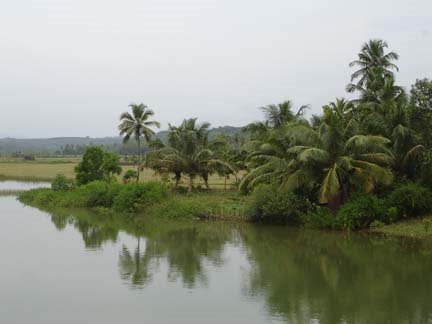There is a place
known as ‘Manki stand’ near
Mangaladevi Temple in Mangalore. The place acquired the epithet of ‘stand’
since it was used as station for ‘Jataka’
(Horse carriage) during the British administration period in Mangalore. I used
to think that the name was Monkey till I found that place names like Manki exist in other places for example
near Honnavar in Uttara Kannada District, Karnataka. Similarly there is a
village known as Permanki near
Gurupur and Ulaibettu.
Etymology
Manki is a term
connected with Munda tribes of Austro-Asiatic origin who were spread in diverse
parts of India in the pre-Dravidian antiquity but presently restricted to parts
of Bihar, Chattisgad, Orissa and Bengal. The term Manki represents a village or
a habitation.
Thus the village
name Permanki means a large village since pera
means large in Dravidian languages also.
Manki Villages in India
Bihar: Manki,
Mankidih, Mankiman
Chattisgarh: Manki
Jharkhand:
Mankidih, Manki Bazar,
Karnataka: Manki, Permanki,
Madhya Pradesh:
Manki, Manki Salaiya, Mankiyai, Mankisar,Manki Ryt
Maharastra; Manki,
Mankivalli
Meghalaya:
Mankingiri
Orissa:
Mankiria,Mankididihi, Mankidia, Mankidi
Punjab: Manki,
Mankinvalli,
Rajastan: Manki,
Mankiyas
Uttar Pradesh:
Manki, Mankikhurd, Mankikalan, Mankiari.
Austro-Asiatic Munda tribes
The wide distribution
of place names containing the term Manki and other place names containing Munda
as prefix or suffix suggest that habitations of Munda tribes were distributed
all over India once upon a time probably before the advent and dominance of Dravidians
in Southern India .
®



No comments:
Post a Comment